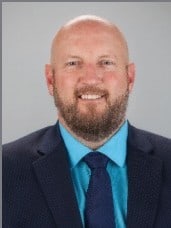Randy Curran shows how misinformation can impede ethical coding and billing. Find out what codes to avoid fraud issues.
by Randy Curran
It is paramount that providers understand the definition of each medical code they bill using their NPI number whether it’s to federal, state, or privately funded insurance plans. As the number of dentists billing medical codes increases, so too will the level of scrutiny applied by payors.
Many dental sleep medicine (DSM) practices utilize the services of third-party billing companies to manage their medical claims. Outsourcing medical billing processes is a prudent decision for many practices. The majority of medical billing companies are adept at obtaining maximum reimbursement which improves practice profitability via increased collections and decreased personnel costs that would otherwise be incurred if managing these processes with internal staff.
Misinformation abounds when in it comes to ethical coding and billing. Appropriate codes must be used for coinciding procedures. It is unacceptable, unethical, and illegal to bill codes that are not applicable for the procedure performed.
Most medical billing companies are extremely competent and follow ethical coding guidelines. However, the onus falls on dentists to ensure that proper codes are being billed under their NPI numbers. This means the proverbial “buck stops with you.” The Department of Justice (DOJ) agrees.
Recently the DOJ discovered wrongdoing with a TMD practice in Wisconsin.1 As a coding expert, this tells me that the practice was likely using codes such as 21085 (impression and custom preparation; oral surgical splint), 21089 (unlisted maxillofacial prosthetic procedure), 21110 (application of interdental fixation device for conditions other than fracture or dislocation), or other non-applicable surgical codes.
I presume this practice did not know what they were doing was wrong, hence a settlement instead of imprisonment. Unfortunately, this is commonplace in the DSM field where many practices are acting based on misinformation and misplaced trust. Over the years, numerous dental practices have informed me that their third-party billing companies instructed them to use the codes mentioned above to bill for AM Aligners, morning repositioners, TMD occlusal guards, and even impressions. These practices were under the impression that this guidance was correct because their billing companies told them it was. They were even told that using reduced service modifiers is acceptable, “because it’s hard to find an accurate code.” Medical coding isn’t a game of horseshoes; you can’t just be close enough. It’s more akin to a hand grenade. Being “close enough” can have dire consequences as it did for the Wisconsin practice discussed earlier.
Another alarming development that can have significant negative repercussions for practices is the advent of third-party entities billing under dentists’ personal NPI numbers, receiving the Explanation of Benefits (EOB), and then directly paying the dentist. The dentist never even sees their patients’ EOBs. This is extremely concerning and exposes practices to risk and liability that may result in penalties, recoup actions, or worse.
Medical insurance fraud accounts for over 70% of fraud in the United States. Lessons can be learned from the misdeeds of DME providers in the early 2000s. Some were billing for prosthetics and supplies for patients they’d never seen and in some cases, the patients weren’t even alive. The DOJ took action which significantly reduced waste and fraud. That same scrutiny may be directed toward the DSM field in the future.
This could be a step in the right direction as it can eliminate fraud, save taxpayer dollars, and ensure competitive parity. It should not cause any trepidation if you’ve done your due diligence and you have always coded ethically. If you’re billing the aforementioned codes or a third-party biller is doing it for you – stop immediately. Then purchase a current coding manual or subscribe to a site like www.supercoder.com which costs less than $10 a month.
Should this article stop dental practices from treating sleep apnea and billing medical insurance? Absolutely not! Accurate coding and ethical billing practices can lead to highly profitable DSM practices. Do the right thing the right way and the revenue will follow.
Randy Curran also discusses ethical coding in obstructive sleep apnea, and the pros and cons of becoming in-network or staying out-of-network. Read more here: https://dentalsleeppractice.com/practice-management/time-to-go-in-network-with-medical-insurance/
- “TMJ & Orofacial Pain Treatment Centers of Wisconsin Agree to Pay $1 Million to Resolve False Claims Act Allegations.” The United States Department of Justice, Department of Justice U.S. Attorney’s Office Eastern District of Wisconsin, 15 Jan. 2020, www.justice.gov/usao-edwi/pr/tmj-orofacial-pain-treatment-centers-wisconsin-agree-pay-1-million-resolve-false-claims.
 Randy Curran is the founder and CEO of Pristine Medical Billing. During the past 12 years, Randy has committed his life to helping those with sleep related breathing disorders obtain prior authorizations for coverage while ensuring providers receive fair compensation for care. Randy has been involved in the treatment of more than 38,000 patients while collecting over $85,000,000 for providers from insurance carriers.
Randy Curran is the founder and CEO of Pristine Medical Billing. During the past 12 years, Randy has committed his life to helping those with sleep related breathing disorders obtain prior authorizations for coverage while ensuring providers receive fair compensation for care. Randy has been involved in the treatment of more than 38,000 patients while collecting over $85,000,000 for providers from insurance carriers.